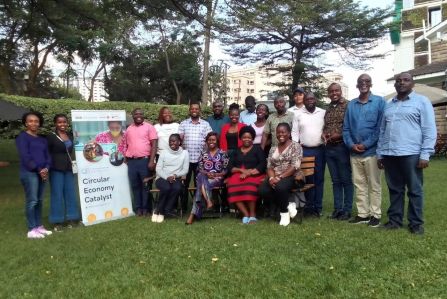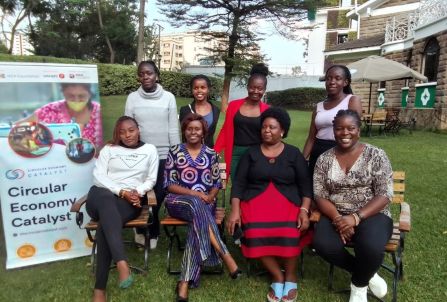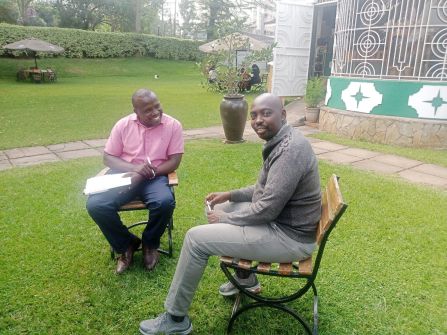Partnership Building Towards a Circular Economy Future
| Date |
Date
|

The Circular Economy Catalyst (CEC) hosted a dynamic networking event on 27th June 2025 in Nairobi dedicated to innovation, impact and investment in the circular economy. The event, implemented by Loopworks Ventures, focused on fostering collaboration and scale in the circular economy. It brought together entrepreneurs, practitioners, startup founders, and business advisors to exchange insights, build partnerships, and explore the enabling conditions necessary for sustainable innovation. A total of 19 different enterprises were present, representing the diversity and vibrancy of the growing circular economy ecosystem.
With circularity becoming an increasingly vital solution to environmental degradation, climate change, and resource inefficiency, the event served as a timely platform for showcasing how small and growing enterprises are using circular principles to drive meaningful impact.
Setting the Stage for Circular Growth
A key feature of the event was the presentation of initial findings from an impact assessment conducted by the CEC team. The report revealed encouraging progress among supported enterprises and advisors:
- A significant number of enterprises launched new products following participation in CEC workshops, underscoring the value of hands-on, co-creative support
- Female entrepreneurs were strongly represented in Kenya pointing to important lessons in gender inclusion
- Most enterprises remained self-funded, signalling both their resilience and the ongoing need for accessible finance
- Impressively, 68% of business advisors reported developing new support programmes for circular businesses
Participants also explored the broader policy environment shaping the circular economy. Key national and sectoral policies were discussed, highlighting both opportunities and constraints. For instance, Kenya’s Extended Producer Responsibility (EPR) regulations are paving the way for improved e-waste management, benefiting enterprises such as VAWOCO, led by Catherine Muraya, which specialises in mobile phone repair and reuse. In contrast, the Seeds and Plant Varieties Act (CAP 326), which restricts farmers from selling self-propagated seeds, was noted as a regulatory barrier to regenerative agriculture.

Shared Experiences, New Connections
Beyond reports and policy discussion, the event provided space for shared storytelling and peer learning. Entrepreneurs and advisors reflected on their circular journeys, exploring challenges, highlighting achievements, and identifying areas of mutual interest.
A particularly promising partnership was formed between Hydro Victoria Farms and Angaza Food. Hydro Victoria breeds Black Soldier Fly (BSF) for animal feed and organic fertiliser, while Angaza Food processes BSF into oil, a key input Hydro Victoria lacked. Their connection at the event exemplified the collaboration possible at such events and the kind of value-chain collaboration the circular economy thrives on.

Looking Ahead
The event fostered knowledge exchange, building new relationships, and helped shape the next steps towards the transition to circularity. It reaffirmed the Circular Economy Catalyst’s commitment to equipping circular enterprises with the tools, networks, and visibility they need to grow and thrive. Insights and participant engagement from the event will help shape the agenda for a larger event planned for the fall.
As more entrepreneurs and advisors join this movement, events like this continue to strengthen the ecosystem and lay the groundwork for a more resilient, inclusive, and circular future.
